
Ensuring that we are doing what we are responsible for so that future generations can come to live in greater communion with nature and with the community in which they belong is a concern today and a project that has been implemented. It is a collective, continuous task, with no end in sight, which must constantly respond to new challenges. More than a project itself, it is a new way of being, in life and in business. It is perhaps here, in this new chapter, that word transformation makes even more sense.
Delivering time and resources to projects that aim to create more sustainable companies from an environmental and social point of view has become a priority within SATA Group. It is simply a responsible, conscious, and committed way of looking at management and business, which makes us an important driving force in our region and which, also for this reason, aims to be at the forefront of the transformation that we all want to see happening in our lives, in our companies, in our region, in our country and, finally, in this Global World that is ours.
As this subject is to be taken very seriously, at SATA Group we started by putting in our organizational chart an area exclusively dedicated to gathering and organizing all the projects that, until now, were developed in the different areas. We weren't frozen in time, but we weren't organized in the best way. As this work is massive and the ambition is even larger, we have already developed some projects in which we are already involved, but others will certainly come up.
This is an ongoing, transversal process, which has a beginning but no end and whose credibility and strength are gained step by step, with each achieved goal and with each passing day.

Throughout the year, we measure and record the impact of the actions carried out, which has allowed us to ensure that we comply with the defined objectives and targets. We compile this information in our Sustainability Reports (available only in Portuguese).
Read our Sustainability Policy.
The SATA Group initiated the IATA Environmental Assessment (IEnvA) program for aviation, developed by the International Air Transport Association (IATA), on May 2022.
A year later, the SATA Group successfully concluded stage 2 of IATA IEnvA and was distinguished with the IEnVA certificate.
SATA Group believes that its mission is to ensure that everything is done to become an example in terms of environmental sustainability.
The IEnvA Program includes processes that promote corporate, operational, and procedural changes to be implemented in all the company areas to ensure the adoption of robust and specific environmental practices for aviation, aiming at reducing its impact on the environment.
Obtaining IEnvA Certification allows the SATA Group to permanently ensure a sustainable and consistent environmental performance, compliant with the aviation industry's best and most recent practices.
Furthermore, the IEnvA Certification granted the ISO 14001:2015 Environmental Certification to SATA Air Açores and Azores Airlines, which adds to the environmental efforts and the successes already achieved.
Special notes about the beginning of the program and forward steps can be found by following the links:
SATA Group launches the IATA Environmental Assessment Program | Azores Airlines
SATA Azores Airlines achieves full IEnVA Certification | Azores Airlines
More information about the IEnvA Program can be found at IATA - Environmental Assessment
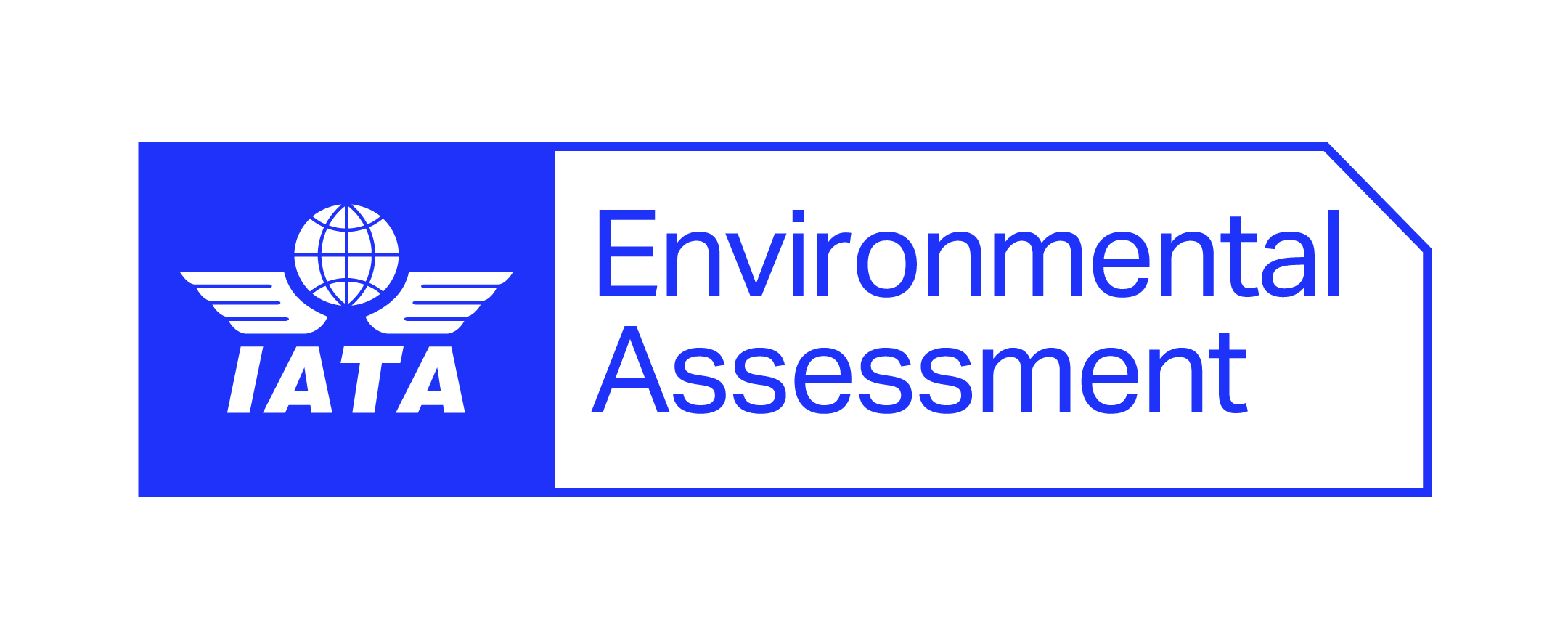
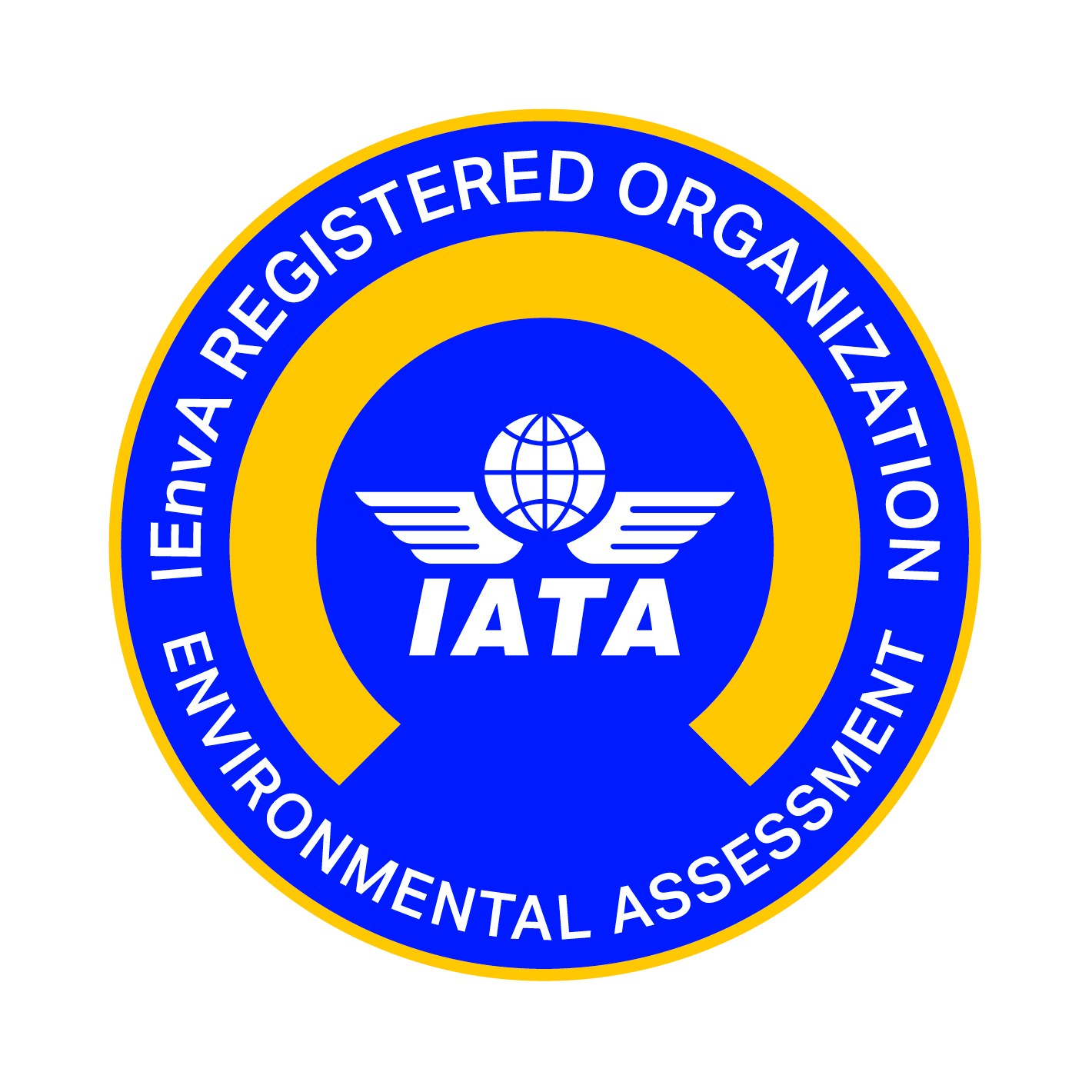
The Azores Sustainability Chart is an initiative of the Regional Secretariat for Energy, Environment and Tourism, that aims to recognize the region as a sustainable destination, targeting to accelerate the local implementation of the Sustainable Development Goals (SDG'S) and the region's contribution to the 2030 Agenda. This initiative has allowed the development of increasingly efficient and innovative sustainability practices by several companies in the archipelago, thus increasingly contributing to make the Azores a worldwide reference for sustainable tourism. Subscribing to the Chart means making a public commitment to responsible, fair, and visible management. With the commitment to develop its activity in an increasingly sustainable way at an environmental, social, and economic level, SATA Group renewed its participation in the Sustainability Charter with the definition of 3 goals:
- Implementing of an annual sustainability report
- Defining sustainability priorities internally with the corresponding map of indicators
Defining a collaborative strategy to operationalize the “sata forest” project


Would you like to offset your flights’ carbon emissions?
Taking another urgent step on the path to Sustainability and contributing to the United Nations Sustainable Development Goals (SDGs), we have launched the Voluntary Carbon Emissions Offset Program that allows SATA’s passengers to offset carbon dioxide (CO2) emissions issued on their flights. Carbon offsetting is achieved by supporting projects that avoid creating new CO2 emissions or removing carbon from the atmosphere.
This program, developed in partnership with IATA (International Air Transport Association), uses reliable practices for calculating CO2 emissions, considering flight parameters, such as the route (origin/destination), distance traveled, transported cargo, number of passengers, booking class, fuel consumption, and aircraft type.
How it works
1
When booking, you can know your flight’s amount of CO2 emissions and how much you can offset. Select the Voluntary Carbon Offset Program option that will be added to your flight.
2
The amount of your compensation is calculated automatically, depending on the level of CO2 emitted by each flight. These levels are based on operational parameters.
3
Compensation for your flight's CO2 emissions will be invested in sustainable, UN-accredited projects.
“Eco-filter Guatemala Improved Stoves and Water Purification” Project.
This is the project that will offset your flight’s CO2 emissions!
In partnership with ClimateCare and Natural Capital Partners, this project aims to improve the health of families in Guatemala by reducing the time and money spent on purchasing fuel for cooking, as well as providing local populations with better access to safe drinking water. The project will provide improved high-quality stoves to replace traditional inefficient fires in rural areas and high-quality water purification devices (eco-filters) that will increase access to safe drinking water.
Thus, climate funding provides a vital incentive to this social project, mitigating the cut down of around 2,000 trees per day and contributing to a reduction of up to 200,000 tons of CO2 emissions per year.
It should be considered that in rural Guatemala, 55% of families do not have access to drinking water. The alternatives, boiling water or buying bottled water, are time-consuming, expensive and harm the planet. The consumption of firewood, which is used to boil and purify water, has contributed to the rampant loss of more than half of the country's forests in the last 50 years.
The “Eco-filter Guatemala Improved Stoves and Water Purification” program also contributes to 10 Sustainable Development Goals (SDGs).
Get detailed information about this project here.
In Portugal, there are still no projects eligible for voluntary carbon offsetting that are certified by the United Nations. As soon as these are available, it is our objective to support a project in the national territory, especially in the Azores, contributing to its Sustainability.
If you have questions about the program, check the Frequently Asked Questions provided by IATA.
Thank you for helping us fly more and more sustainably.

CELE CARBON COMPENSATION
It is a European mechanism for regulating greenhouse gas (GHG) emissions that sets limits for emissions from all the installations and air operators covered. It is a decarbonization instrument that aims to reduce emissions where the associated cost is lower. In 2021, SATA Group participated in phase IV (2021-2030) of the program, contributing to achieving the goal of reducing 40% in GHGs by 2030 (base year 1990).
CORSIA CARBON COMPENSATION
CORSIA (Carbon Off setting and Reduction Scheme for International Aviation) is the Carbon Offsetting and Reduction Scheme for International Aviation, developed by the ICAO (International Civil Aviation Organization) that aims to offset the increase of CO2 emissions in international air traffic. This project will run from 2021-2035 and will consist of 3 phases. SATA Group is currently in the Pilot Phase (2021-2023), where it reports emissions from the routes covered by the project.
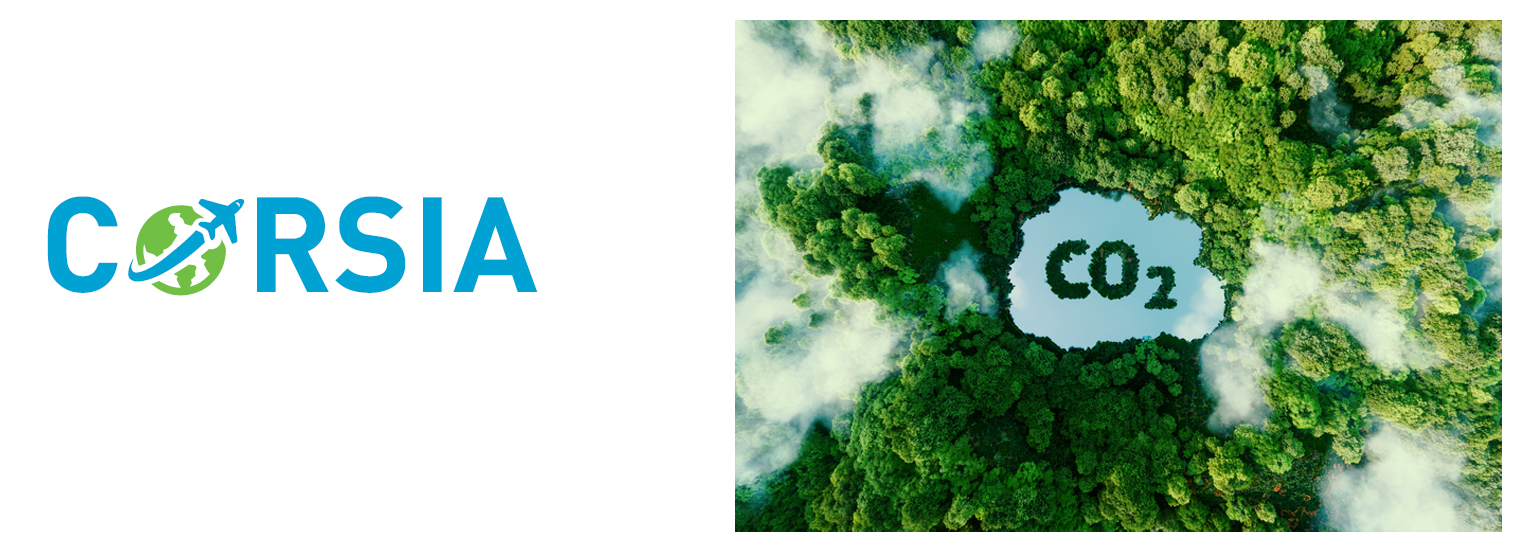
Started in 2018, the fleet renewal process is a major investment for airlines, but inevitable. In addition to other advantages, it allows for a significant reduction in fuel and consequent CO2 reduction into the atmosphere. In 2021, Azores Airlines received a new Airbus A321neo LR.
State-of-the-art engines with Sharklet devices on their wings allowed to reduce fuel consumption by around 37% and the respective carbon footprint of each passenger, when compared with the previous fleet. A total annual reduction of 13,200 t CO2 is estimated when ending the process, which is an important investment in improving the quality of service in line with sustainability commitments.
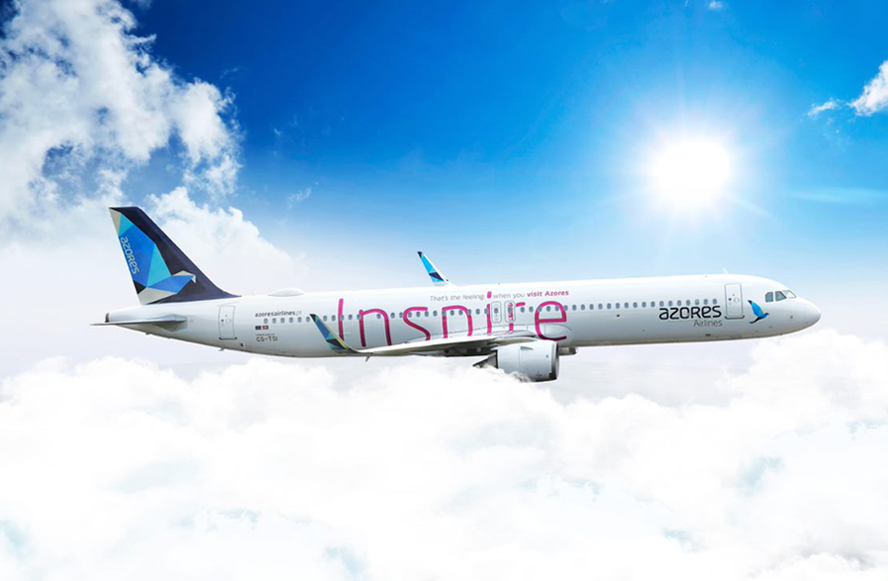
The presence of technology at the service of air operations and of all inherent administrative processes has been increasing. In 2021, more than seventy technological projects were developed within the SATA Group, which resulted in the more efficient conduct of many tasks. From check-in to flight, through the commercial and administrative area, more than seven dozen projects were developed. It will not stop here because technological innovation doesn’t stop, and it is necessary to keep it going, but a lot has been achieved in 2020 and 2021. Paper, time, and consumables reduction is measurable and measured periodically. Progress is accounted for and reported. Annually, they are reflected in the company’s Annual Report.
Operational measures are actions with an impact on the direct reduction of fuels and CO2 emissions, which contribute to the carbon neutralization of aviation.
At SATA Air Açores, the adoption of specific operational measures, in certain flight phases, represents an average annual fuel savings of 21% in the Dash8 Q400 fleet and 26% in the Dash8 Q200 fleet, equivalent to around 900 tCO2/year. At Azores Airlines, we continued to ensure projects such as the Dynamic Efficiency Project, in line with the Green Operating Procedures of the manufacturer Airbus, which has allowed the implementation of new operating procedures with a view to achieving efficiency gains. Both airlines also converted all in-flight manuals to Electronic Flight Bag which meant the dematerialization of all printed on-board manuals, which in the example of Azores Airlines, translates into the removal of 13 manuals on each aircraft, the equivalent of 51Kg that no longer fly with the airline, on each operated flight. Nature is surely benefited.
SATA Air Açores and Azores Airlines are at the forefront of the Zero Emissions Alliance for Aviation, which goal is to ensure the integration of hydrogen and electricity-powered aircraft in their fleets by the year of 2050.
The Zero Emissions Alliance in Aviation is a program endorsed by the European Commission and includes organizations deeply engaged with the decarbonization of aviation in the coming years.
The Alliance commitment will be followed by clear goals to accomplish across the year and an established plan to present results.
This joint initiative is running in parallel with existing research programs, such as SESAR 3 and Clean Aviation, both of which have the European Commission's endorsement.
SATA Group’s airlines taking part in the Zero Emissions in Aviation Alliance will strengthen other initiatives with several airline partners, namely Airbus, Bombardier, IATA, and ERA.
The possibility of exchanging knowledge and experiences among partners is vital if the industry wishes to target a zero-emissions future. The Azorean airlines are profoundly engaged and already adopting best practices aiming to defend environmental sustainability globally, without ignoring never that it's part of the airlines' mission to help preserving the natural balance of the Azores Archipelago. After all, the Azores are the leading destination of SATA’s airlines.
Willing to know more about it? Alliance for Zero Emission Aviation (europa.eu)

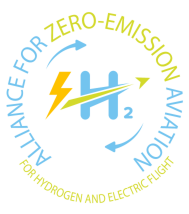
Credible Hybrid Electric Aircraft (CHYLA) was a project funded by the European Union, part of the CleanSky program, which aims to study and develop hybrid-electric technology and design for each aircraft category. The Project was developed by TU Delft (Delft University of Technology) and is creating an aerial network model to study how operators can use hybrid design concepts for regional operators. SATA Group, attentive to the evolution of technology and aligned with environmental commitments, shared SATA Air Açores operational data to contribute to the development of the study. Advances in electric power/propulsion technology are revolutionizing the aviation sector, enabling integrated and sustainable solutions in the future.
GRACE is a public utility association that works in the areas of Social Responsibility and Sustainability, and its mission is to promote and develop a sustainable business culture. It currently brings together more than 180 companies of the most varied dimensions and sectors of activity, committed to the search for practical solutions for the sustainable growth of communities and organizations. Recognizing the importance of Sustainability in the organization, SATA Group joined GRACE, taking advantage of a platform for sharing and supporting the implementation of good practices.


We were pioneers in the construction of Cluster Grace in the Azores
Because adjusting our actions to the regional reality to meet local specificities is essential, we integrated the group of founding companies of Cluster Grace Azores, together with companies Bel and Grupo Sousa. By being part of this Cluster, we intend to create synergies with Grace associates and Members of the Azores Cluster and develop actions that allow us to place the themes of Agenda 2030, 2050 and ESG ESG (Environmental, Sustainability and Governance) as priorities in the agendas of our companies. Believing that we achieve more together and rowing in the same direction will be another step towards the sustainable future we all want to build. The Azores Cluster officially started in December 2022.
‘Fly Without Fins’ COMMITMENT STATEMENT
On September 1, 2022, SATA group’s airlines joined the “Fly Without Fins” movement.
With immediate effect, the carriage of all shark fins will be forbidden on all SATA Air Açores and Azores Airlines airplanes departing from any of its destinations. The main principle of this movement, which some airlines have joined, is the non-acceptance of cargo that may be related to shark finning, as it is considered a cruel and unsustainable practice that undermines animal dignity and has placed sharks in danger of extinction.
Although this is not a practice known in the Azores, an archipelago that has received several distinctions in terms of sustainability and is recognized for adopting responsible fishing practices, nor a matter which SATA Azores Airlines has been confronted until date, SATA group’s airlines, which fly to different geographies, consider that by applying concrete measures, airlines will help Shark Guardian and a multitude of other marine conservation organizations to mitigate the problem.
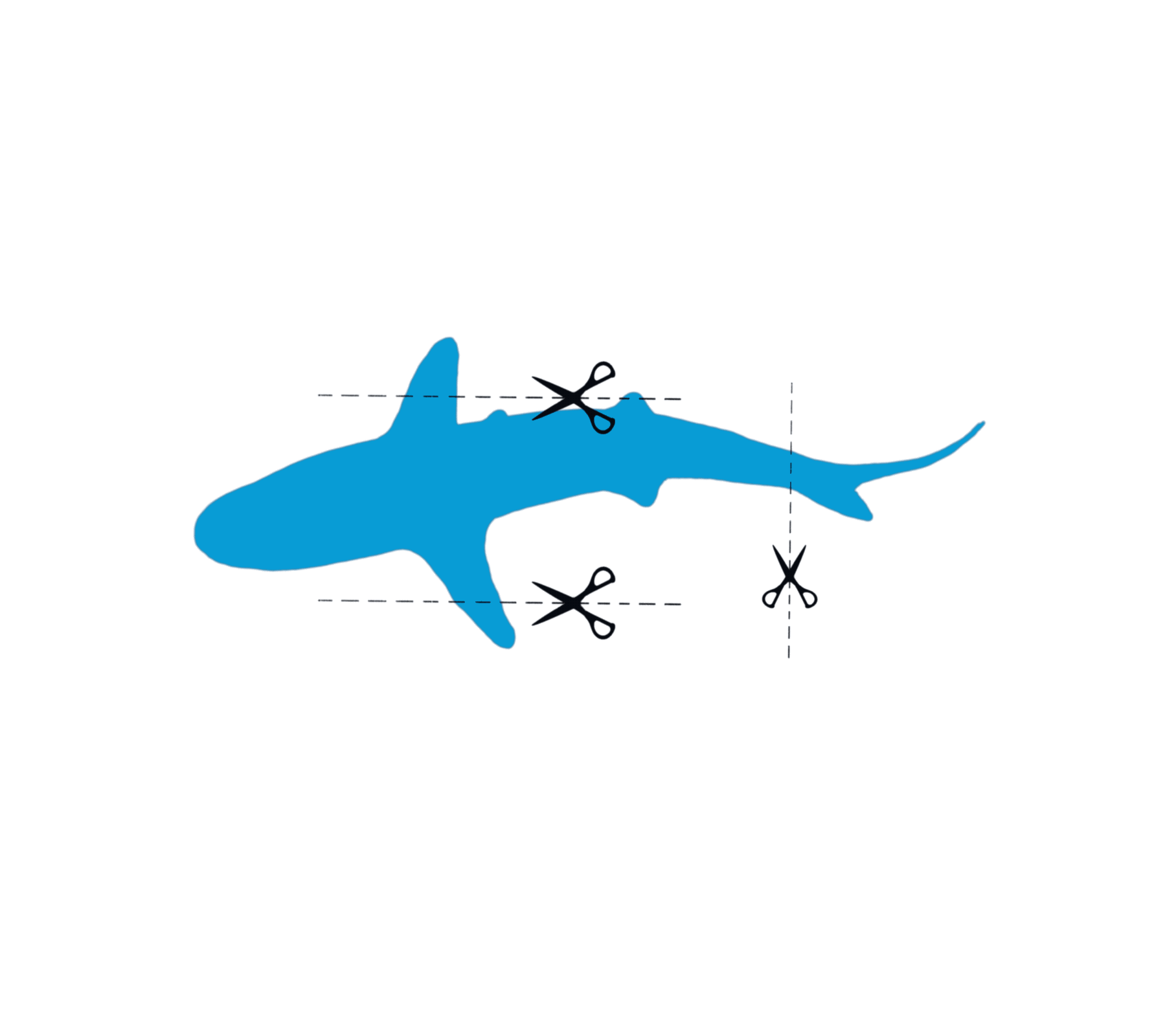
When there's so much to do, all efforts seem urgent and never enough. And that's the reason why we will continue to embrace as many causes as possible. Compromising with United for Wildlife by signing the "Buckingham Palace Declaration” represents one more step to accomplish what we all consider to be imperative: to stop with illegal wildlife trade and preserve animal’s welfare.
Although we usually don't operate in regions where there is a history of non-legal trading of wild animals, the fact that we subscribe to this commitment with 'United For Wildlife' and cooperate with the Transport Taskforce will allow us to contribute to the worldwide movement.
By signing the Buckingham Palace Declaration, participating airlines are committed to adopting and encouraging a zero-tolerance policy towards the exploitation of wildlife; to raising awareness among its employees, partners and customers about the nature, scale, and consequences of the illegal wildlife trade; and to encouraging other partners to join this international "taskforce". In this context, special attention will be given to transporting cargo and goods on our aircraft, on all flights and to any of our destinations.
If you want to know what we can do to help United for Wildlife Transport Taskforce:
How Aviation Staff Can Help Stop the Illegal Wildlife Trade (Europe) — ROUTES (routespartnership.org)
If you wish to learn more about United for Wildlife purposes:
United for Wildlife - Ending the Illegal Wildlife Trade - United for Wildlife
Or about other IATA initiatives that we’ve also embraced:
IATA - Environment




